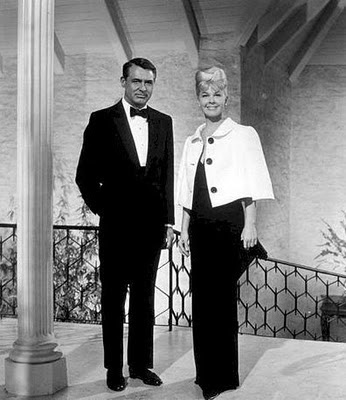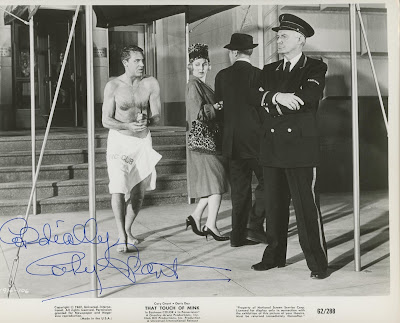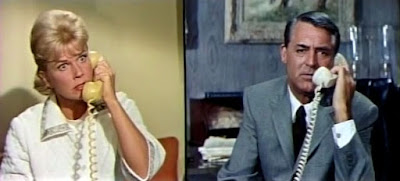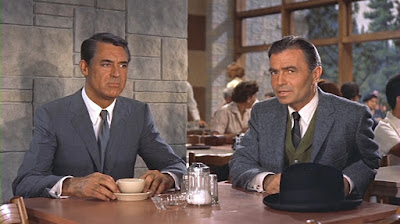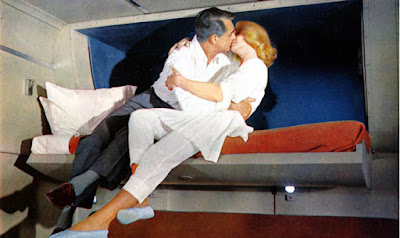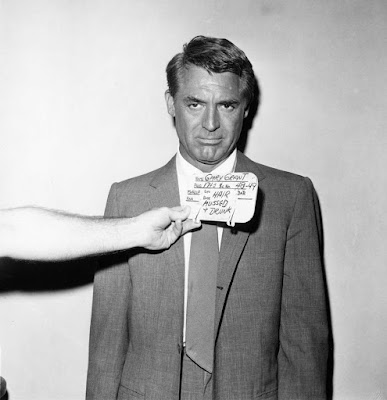On this day in 1946, Notorious, Cary Grant's 49th full length feature film, was released.
Summary:
The group is lead by Alexander Sebastian (Claude Rains), an ex-flame of Alicia. Alicia manages to infiltrate the group, but her previous relationship with Sebastian complicates things, as does her developing relationship with Devlin.
Cast:
Cary Grant... Devlin
Ingrid Bergman...Alicia Huberman
Claude Rains...Alexander Sebastian
Louis Calhern...Paul Prescott
Leopoldine Konstantin...Mme. Sebastian (as Madame Konstantin)
Reinhold Schünzel...Dr. Anderson' (as Reinhold Schunzel)
Moroni Olsen...Walter Beardsley
Ivan Triesault...Eric Mathis
Alexis Minotis...Joseph (as Alex Minotis)
Wally Brown...Mr. Hopkins
Charles Mendl...Commodore (as Sir Charles Mendl)
Ricardo Costa...Dr. Barbosa
E.A. Krumschmidt...Hupka (as Eberhard Krumschmidt)
Fay Baker...Ethel
Did You Know?
After filming had ended, Cary Grant kept the famous UNICA key. A few years later he gave the key to his great friend and co-star Ingrid Bergman, saying that the key had given him luck and hoped it would do the same for her. Many years later, at a tribute to director Sir Alfred Hitchcock, Bergman went off-script and presented the key to him, to his surprise and delight.
Director Sir Alfred Hitchcock and screenwriter Ben Hecht consulted Nobel Prize winner Dr. Robert Millikan on how to make an atomic bomb. He refused to answer, but confirmed that the principal ingredient, uranium, could fit in a wine bottle.
Sir Alfred Hitchcock got the shot where Ingrid Bergman is in the background and the coffee cup is in the foreground, with both in focus, by using a giant coffee cup placed farther away than it appears.
Sir Alfred Hitchcock claimed that the F.B.I. had him under surveillance for three months because this movie dealt with uranium.
The kissing scene on the balcony was largely improvised. Sir Alfred Hitchcock told Cary Grant and Ingrid Bergman to just speak as lovers would.
This is the second adaptation of the story "The Song of the Dragon" by John Taintor Foote. The first being the silent movie, Convoy (1927).
While filming one shot, Cary Grant carped that he was supposed to open the door with his right hand, but he was holding his hat in that hand. "Have you considered the possibility of transferring the hat to the other hand?" Sir Alfred Hitchcock replied.
The movie Mission Impossible II, directed by John Woo and written by Bruce Geller and Ronald D. Moore seems a virtual remake of Notorious, in plot, characters, story line and some sequences are almost scene by scene.
When Alicia and Devlin are flying to South America, the movement of the clouds makes it appear that the plane is flying backwards.
Quotes:
Alicia: This is a very strange love affair.
Devlin: Why?
Alicia: Maybe the fact that you don't love me.
Devlin: A man doesn't tell a woman what to do. She tells herself.
Alicia: You're sore because you've fallen for a little drunk you tamed in Miami and you don't like it. It makes you sick all over, doesn't it? People will laugh at you, the invincible Devlin, in love with someone who isn't worth even wasting the words on.
Madame Sebastian: Wouldn't it be a little too much if we both grinned at her like idiots.
Alicia: I'm terrified.
Devlin: Just pretend you're a janitor. Janitors are never terrified.
Alicia: I have a feeling they're very slow.
Alicia: Dev, is that you? I am glad you are late. This chicken took longer than I expected... what did they say? Hope it isn't done too - too much. Of course, i-it caught fire once... I think it's better if I cut it up out here, unless you want a half of one for yourself. We're going to have knives and forks, after all, I've decided we're going to eat in style. Marriage must be wonderful with this sort of thing going on everyday.
Alicia: This fog gets me.
Devlin: That's your hair in your eyes.
Ethel: Where are you going?
Mr. Hopkins: Fishing.
Ethel: At this time of night? You're mad.
Mr. Hopkins: What's the difference? There's no fish, day or night.
Lobby Cards and Posters:
Directed and Produced by Alfred Hitchcock.
Distributed by RKO Radio.
Running Time: 103 minutes.
Artwork by Rebekah Hawley at Studio36.
























